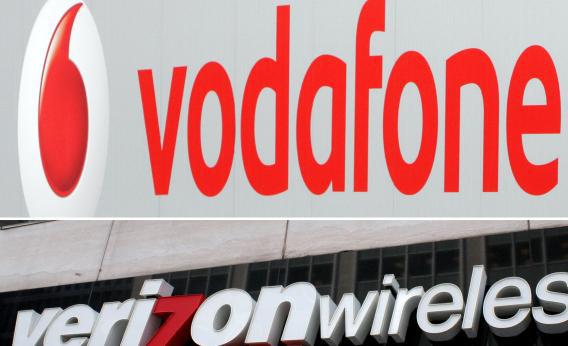A big cross-border merger and acquisition is close to completion and at a price of $130 billion it’s one of the largest on record. But unfortunately for business writers, it’s also really boring.
At stake is a proposal by Verizon to buy … Verizon Wireless.
Doesn’t Verizon already own Verizon Wireless? Mostly. But way back in the late-1990s when U.S. cellular telephony was behind the European state of the art, Verizon Wireless was launched as a joint venture between Verizon (the successor company to Bell Atlantic and other Baby Bells) and Vodafone, the British mobile phone operator. Vodafone owns 45 percent of the operation, and the way it’s structured both Vodafone and Verizon take Verizon Wireless profits in the form of dividends. This has been nice for Vodafone over the past few years while revenue from its core European operations has been hurt by the Eurozone slump. But it’s also been a difficult arrangement to exit from on mutually agreeable terms because of the tax implications of Verizon cutting Vodafone a huge check. This week, though, the stars seem to be aligned for them to work it out in an agreeable way.
For Americans this has seemingly few implications. In principle this could allow Verizon to tie its wireless offering more tightly with its wireline phone service and FIOS offerings, but this is hardly a game-changer. It’ll perhaps be the end of Verizon Wireless customers like me navigating to www.Verizon.com only to realize we need to click a link and navigate over to www.VerizonWireless.com in order to check our mobile phone bills.
But for Europe it’s more of an interesting scenario. Vodafone is going to have a lot more cash and a lot less in the way of assets after this deal. Will they kick that cash out to shareholders with a sharebuyback or a special dividend or will they invest the money in expanding their infrastructure and their business? The boring special dividend path is always tempting, but Europe’s citizens will be better off if Vodafone opts for something bolder.
Mostly, though, this mega-deal shows how dull today’s mega-deals have become. This is the largest acquisition since the year 2000—and the third-largest acquisition of all-time—when Vodafone bought Mannesmann, a big German mobile phone operator. That had the thrill of international intrigue. And the only deal larger than that was the AOL/TimeWarner blockbuster that reshaped industries and made everyone look like idiots. That was a party. Verizon buying Verizon Wireless is boring boring boring.
